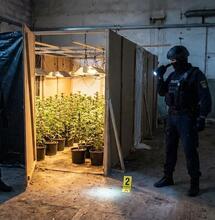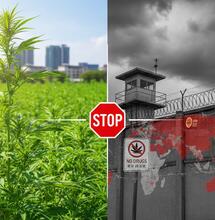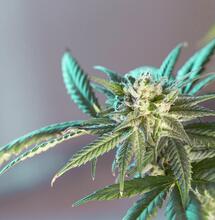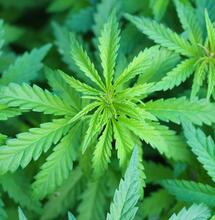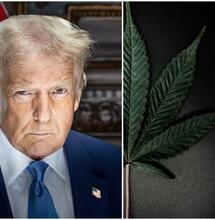French Academics Do Not Want Recreational Legalization

In a press release published on April 9, the French Academy of Medicine once again came out against the legalization of recreational cannabis, as it had already done in 2021 and 2023. Certain academy members are no stranger to making controversial claims about cannabis either.
The French Academy of Medicine Remains Opposed to Recreational Cannabis Legalization
According to its statement, the Académie de Médecine believes that legalizing cannabis for recreational use would cause serious public health problems. The recent press release spotlights studies unfavorable to legalization, without making any mention of the many publications that focus on the positive therapeutic effects from cannabis.
The academy is allegedly worried about the increased hospitalization from roadside accidents involving cannabis, hospitalization of children who’ve ingested edibles, and a higher rate of psychiatric disorders.
The press release highlights the “increase of between 12 and 22% in the number of hospitalizations due to cannabis among adults” in Canada, as well as a “3-fold increase in the number of hospitalizations among children aged 0 to 9” getting intoxicated and falling sick after ingesting edibles. It further mentions double number of drivers hospitalized after a road accident who have tested positive for THC, following legalization.
In regards to road accidents, however, there is no data that establishes a causal relationship between testing positive on cannabis and being directly responsible for crashes or collisions.
The press release goes on to express a concern about the number of people suffering from psychosis in the U.S. following legalization. “The proportion of new cases of schizophrenia associated with cannabis use rose from 3.7% before legalization to 10.3% after legalization, with young men aged 19 to 24 being the most vulnerable.”
Academics Say Legalization Led to an Increase in Consumption
Between 1992 and the start of legal states, cannabis use in the USA increased 20-fold, from 0.9 million to 17.7 million, the press release says. Yet again, it does not include any report from the states where it is established that legalization has not increased among youths or other vulnerable groups.
The letter from Académie de Médecine concludes with a recommendation “to maintain the ban on the sale and consumption of cannabis in France, given all its toxic effects.” In addition, the academics urge authorities to continue and expand prevention and information programs “on the toxicity of this drug, from the earliest age.”
Controversial Claims on Cannabis Use
Some of the statements that individual French academics have made on marijuana are contentious to say the least. Jean Constentin, member of the academy and a long-time opponent to cannabis, has suggested in an article that cannabis users are “drug users” who should use contraception to prevent from reproducing and therefore passing on cannabis-induced epigenetic modifications to an offspring. Despite its opposition to cannabis, the French Academy of Medicine has since dissociated from the extremist remarks made by its troublesome member, according to Soft Secrets’ French correspondent.
France has the highest rate of cannabis consumption throughout Europe. The country’s judicial system spends huge sums of money every year on persecution of cannabis users, very often for carrying small amounts of weed that are probably for personal use. In many other legal countries, legalization is what has helped push down exceptionally high rates of cannabis consumption and its abuse among socially vulnerable groups.
More from Soft Secrets:








